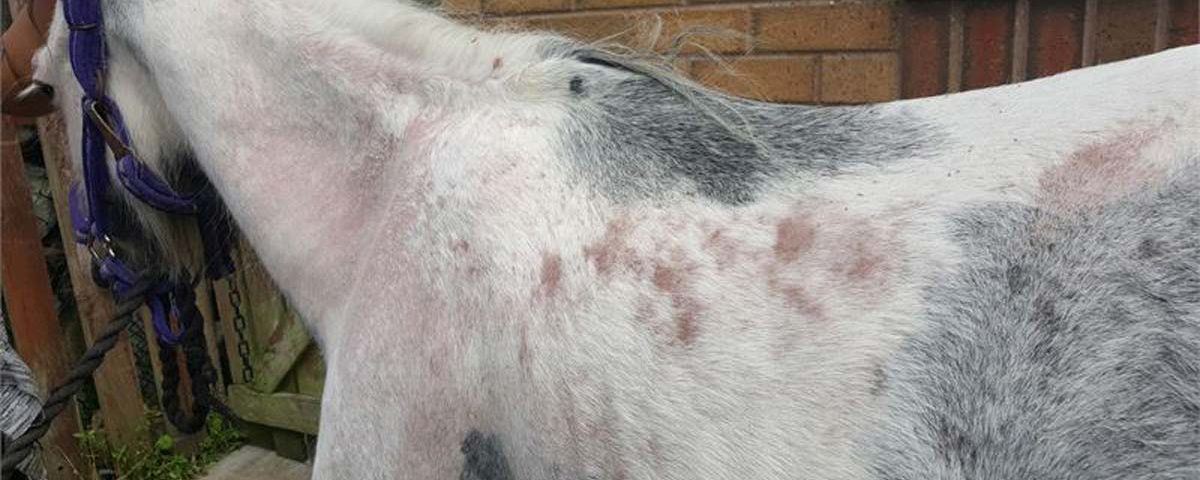Warning – this article contains distressing images
Back in July we attended a call for help. We briefly mentioned it in our July Newsletter and now, 3 months on, we can disclose some of the details about that case.
There was a young Blagden (Gypsy Cob) being kept in appalling conditions in a back garden. He was tied into a heavy weight stable rug, which was four sizes too big for him. When I (Lisa) arrived at the location, I met with the people who reported him to us to show me where the pony was. They advised me, which was later confirmed, that the pony had previously been kept in another back garden, and before that at an awful stable-only livery yard (stable only meaning that there was no grazing or turnout available) – a yard favoured by many when there was a crackdown on fly grazing in the area.
The call out was during the great heat wave of 2018. The pony had been doused in cooking oil, to make his coat shine, as the owner was advised that cooking oil was great for a shiny coat. The owner however had not realized that whoever advised them about cooking oil, failed to mention that they needed to ingest it, not be bathed in it.
As a result of this, this poor pony was being roasted alive in baking temperatures in excess of 28 degrees, which led to his little body being burnt.
WARNING UPSETTING IMAGES.
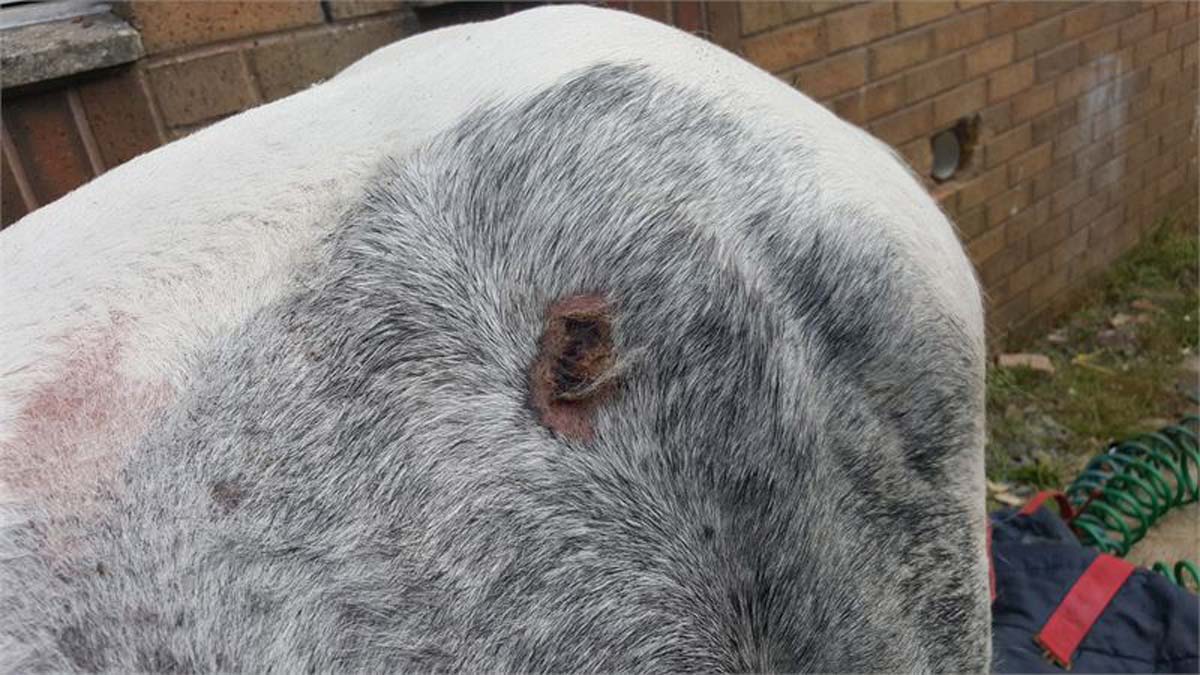
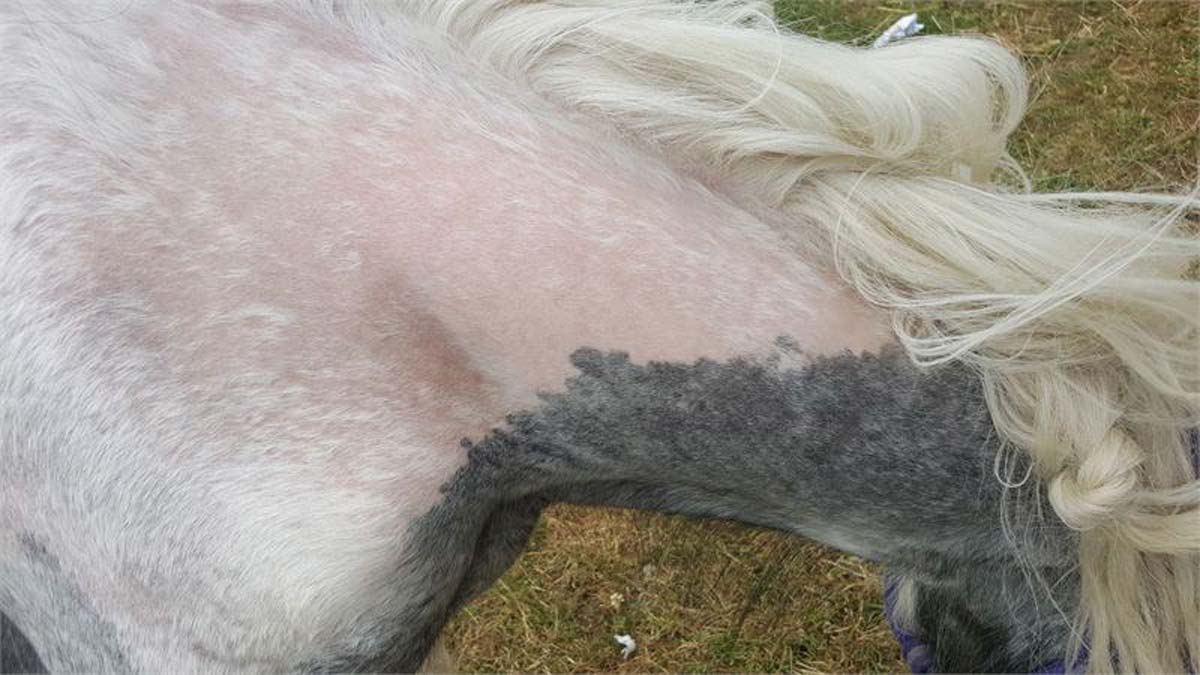
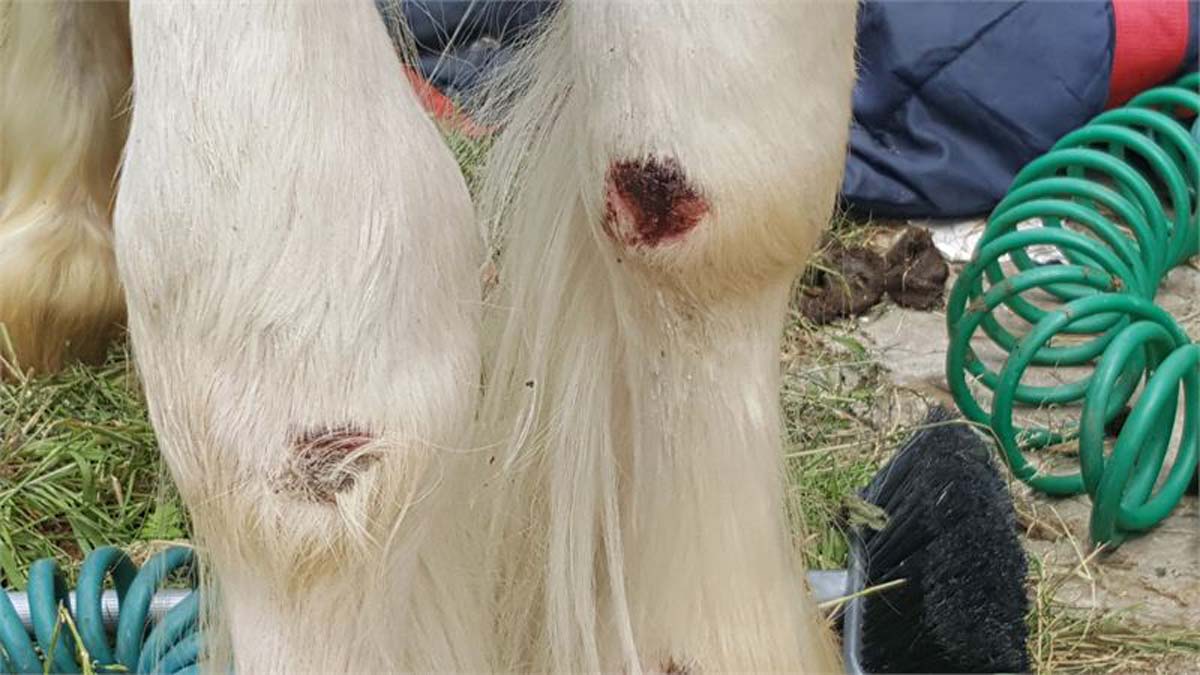
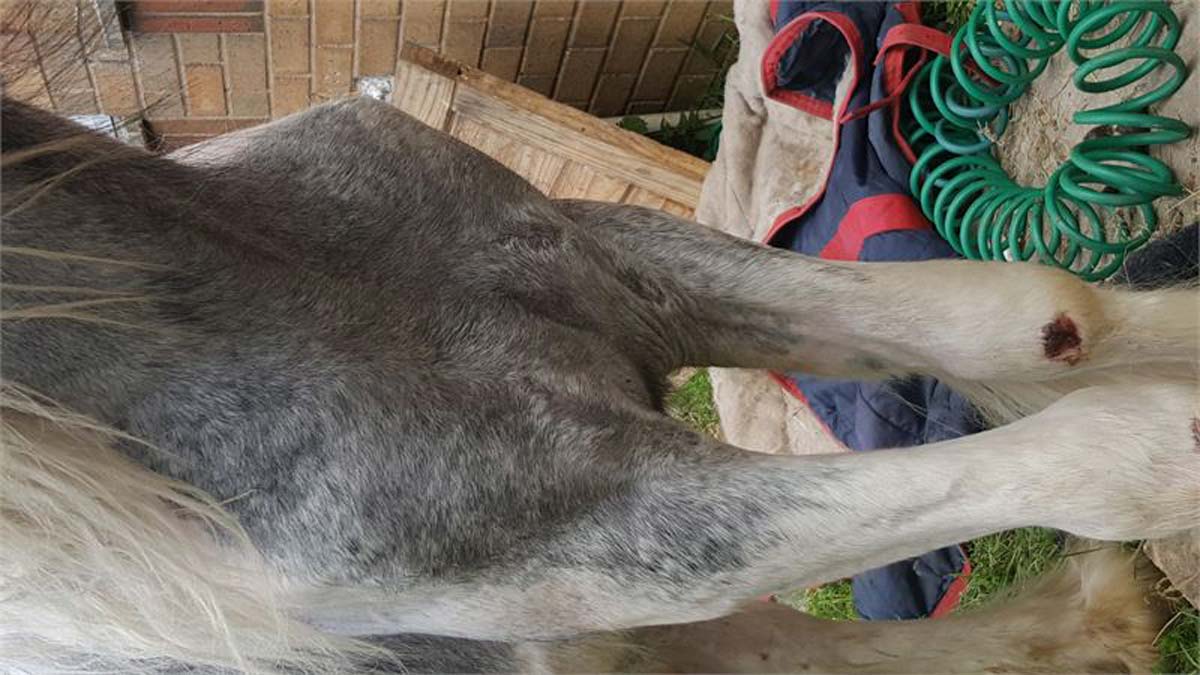
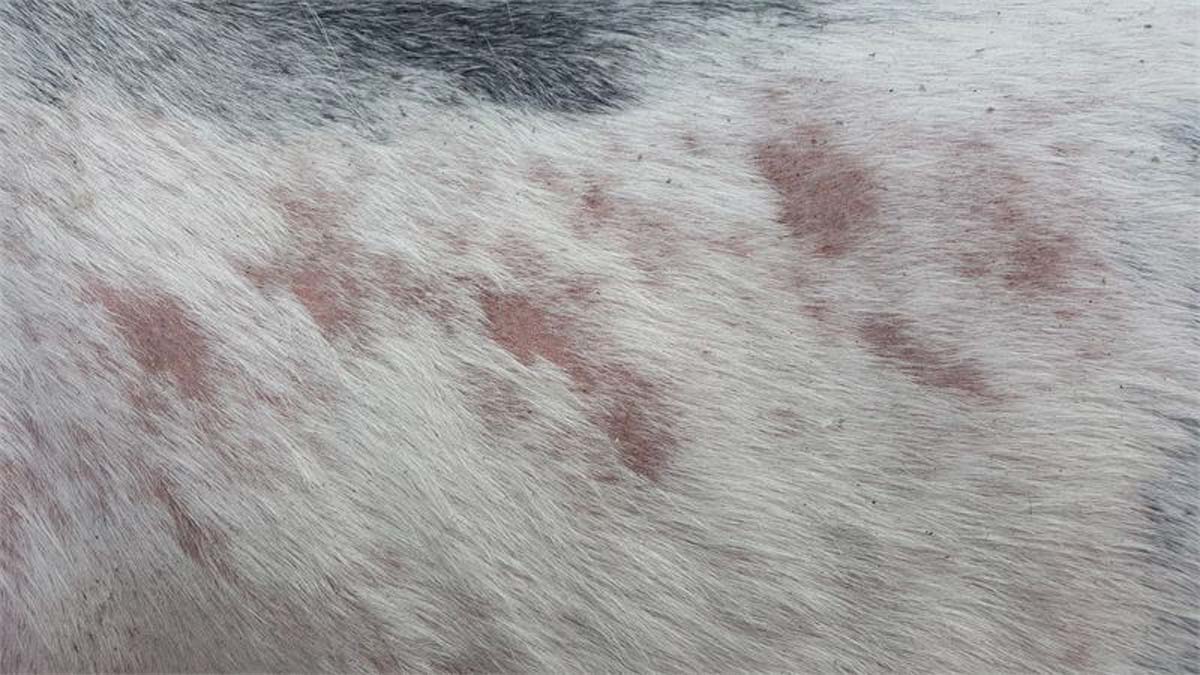
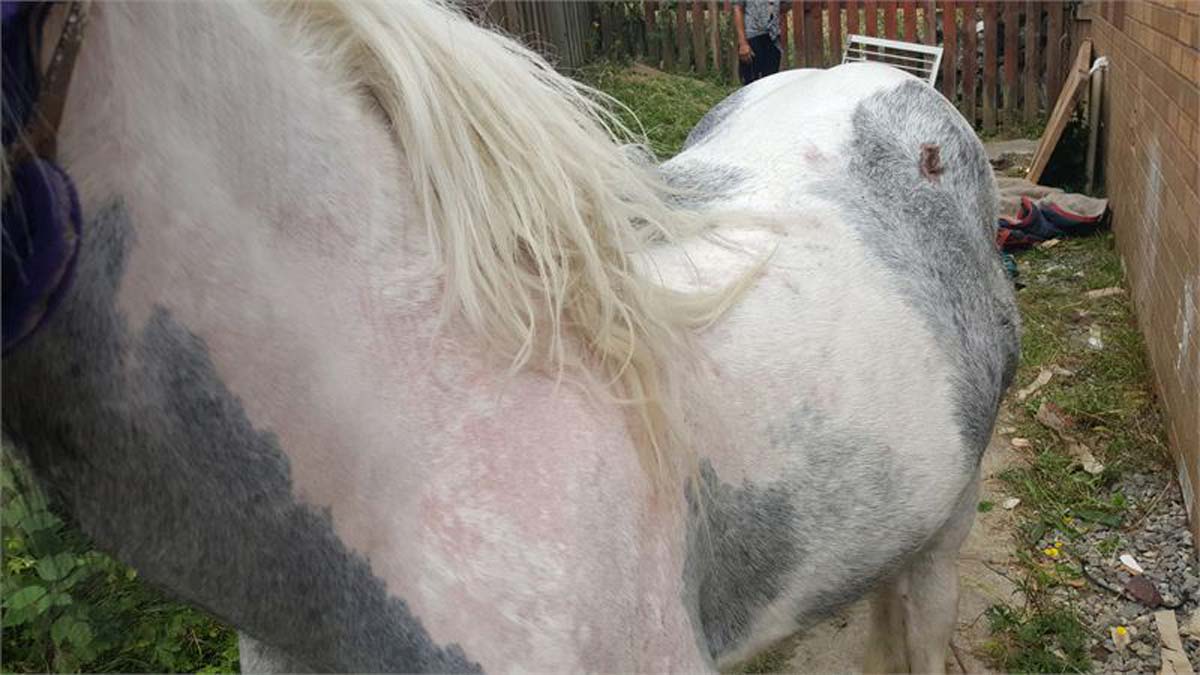
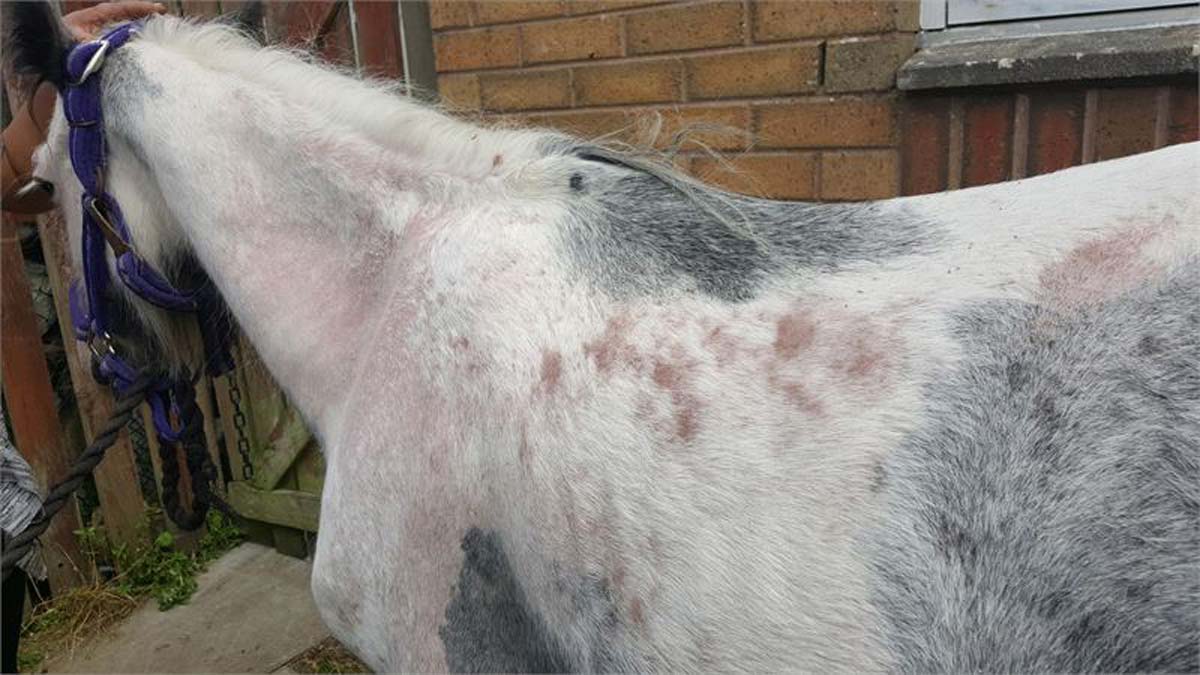
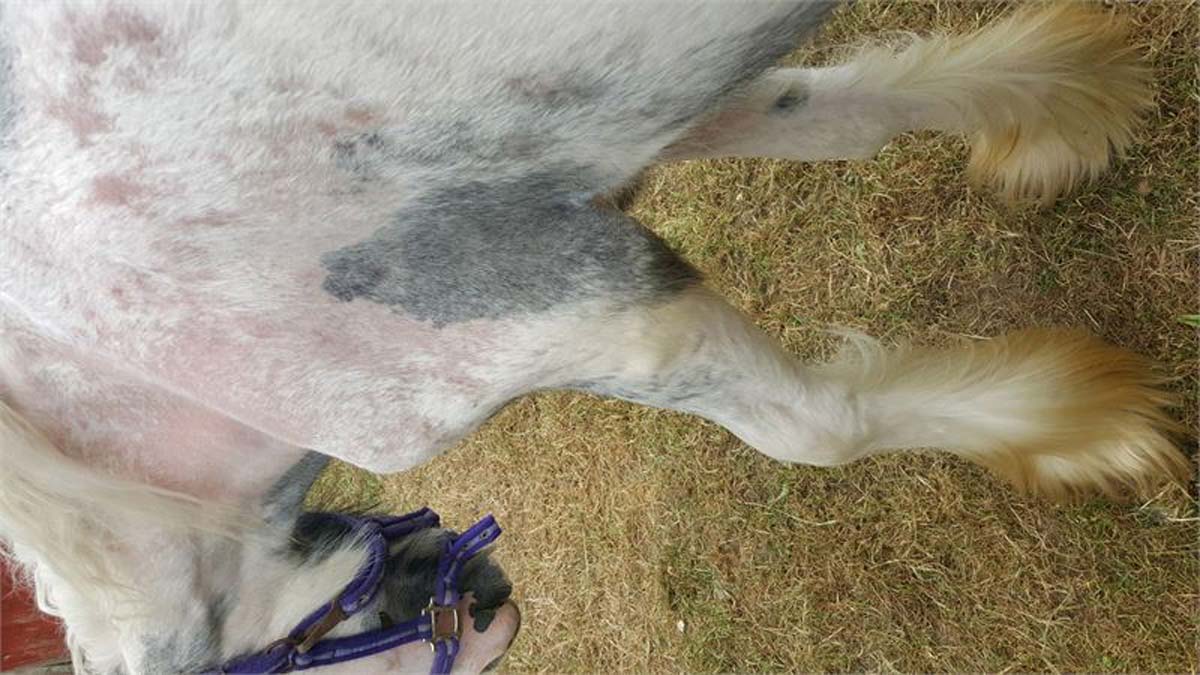
On examining the pony, we found wounds to his knees, on enquiring with the owner, they told us he fell, when they were riding him, he was only a baby! Approx. 7/8 months old.
He had scaring and sores from pressure wounds on his hip bones, where he had become so emaciated that his bones came into contact with what we suspect as dirty, wet stable floors, with little clean bedding.
His body condition score was approx. 1.5 – a prominent pelvis and croup, a sunken rump but skin supple, a deep cavity under the tail. Ribs visible, backbone covered but spine can be felt.
There was evidence of diarrhoea on his back end, with what we suspected to be a worm burden and lack of an appropriate diet. (This was later confirmed, friends had brought peelings over for him)
This poor little chap, really was not in a good way.
We advised the owner that the horse required veterinary treatment as a matter of urgency, to which the response was, we have no money.
Then came the family… one of whom claimed to have graduated from equine college after studying horse care. The owner and family appeared to have knowledge about horses; I was even shown images of them competing. They tried to convince me that they were capable of looking after the horse and that the ailments and injuries he had suffered were through no fault of their own.
The family obviously had financial issues and clear problems with drug misuse. All the friends and neighbours, who also appeared to have the same personal circumstances came out to assist them.
The owners finally agreed that that they would arrange for the vet to call, as per my request. However, I was not permitted to discuss the situation with the vets that they had called. This led to the veterinary practice advising the owners that the horse could be seen, some days after my visit.
This was not acceptable to me, despite their desperate pleas, cries and aggression.
The family had obvious difficulties, for which I took pity on them. However my concern was the pony. They had the option of relinquishing ownership of the pony to Communities For Horses, which would then enable us to get the pony to a safe environment, where he would receive veterinary treatment, shelter from the burning rays of sun and an appropriate diet.
This however fell on deaf ears; they unfortunately could not see what was in the horse’s best interest. This is where love is blind. I have no doubt that they loved this pony dearly; they gave him what they could, by means of peelings donated from neighbours and the odd bag of carrots. The heartbreaking cries when I advised that I could not leave the pony with them untreated did not go unnoticed, however my priority was the pony.
We at Communities For Horses have a zero tolerance for neglect and cruelty, intentional or not. We notified the statutory authority and arranged for the horse to be seized. I had no doubt in my mind that this was the best thing for this pony as the owners clearly could not look after the pony. Love alone does not provide what a pony requires.
The pony was seized by the Local Authority and seen by a vet.
The ponies’ future is currently unknown; we did advise that should the local authority wish to place the pony with us, that we would be more than happy to take him on. I believe other arrangements were made for him.
This story is so poignant: Why?
I see campaigns saying “Stop the pain break the chain!”. If this pony was kept where I suspect he would have been fly grazed, he would not have been kept in a deep dark dirty stable, where he could slowly waste away, out of sight, out of mind.
He would have been monitored and had grass to graze. Had the owners not kept up with his upkeep, it would be noticed by others, reported, monitored and the owners would have had the opportunity to learn about how to care for him, feed him and so on. Or he would have been noticed very early on, if he been suffering.
We more than likely could have prevented this happening to him. As it was, however, he went from being hidden in a stable to being hidden in a back garden on an estate full of disadvantaged individuals with an alarming rate of drug and alcohol addiction.
The call came from an individual, who shows no trust for other welfare organisations, as is the case for many whom have come into contact with other groups. We ourselves have had good and bad encounters within this community. Where we can assist, train, teach, advise, assist we will to those who truly want what their horses need – to be allowed to be horses, to be well cared for and healthy. We have sustained our relationships for years in these areas. We do what we say we will do, be it to the liking of the owner or not, for this reason we have trust and respect.
The number of horses in these areas have decreased slightly with the application of the fly grazing legislation. However we see more that have been hidden away – some in awful situations as above. The lowest price a yearling was sold for at the last sale was just £16. No horse box is required as they can and do travel from the sales in cars and vans. Very few of the lower priced horses get to go to a caring, loving, knowledgeable, environment, where they can be healthy and looked after.
So I ask you, please support our work – for the sake of the horses. Without your support we cannot continue to answer calls such as this one.

